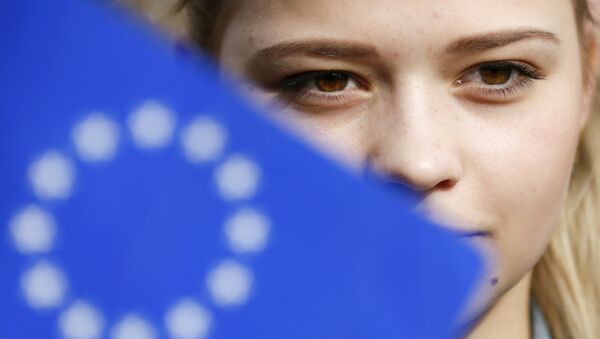Dutch voters started casting their ballots on Wednesday, in a non-binding vote about a trade deal that would establish stronger links between the EU and Ukraine. Although a negative result is unlikely to actually lead Amsterdam to block the treaty, many Dutch citizens are using the referendum as an outlet to vent their opposition to EU's lack of democracy.
The genesis of the vote is decidedly surreal. The idea was first floated on right-wing satirical website GeenStijl, almost as a pretext to poke fun at a new referendum law the Netherlands passed last year.
The website quickly managed to gather the 300,000 signatures needed for calling a vote. Expressing discontent for the 2,135 page document, which among other things will create new rules on Ukraine-EU apricot commerce, was immediately restyled as a way to stick it to Brussels.
Zeau. pic.twitter.com/ZW81X9jXY6
— Pritt (@Pritt) April 6, 2016
The battle was seized by another champion of Euroskepticism, UK's Member of European Parliament Nigel Farage. The leader of the UK Independence Party (Ukip) has appeared and spoken at several events of the 'No' campaign in the Netherlands.
.@Nigel_Farage's speech in the Netherlands is well underway, watch it here https://t.co/x7DQ5eWi1Q pic.twitter.com/phW7105NuU
— UKIP (@UKIP) 4 April 2016
Mr Farage framed the Dutch vote as just another manifestation of anti-EU sentiment, calling the referendum the "hors' d'oeuvre" to the Brexit vote's "main course." He said that the trade deal was only the first step on the road of surreptitiously extending the Union further East.
UKIP was also involved in a controversy over the alleged funding of the 'No' front in the Netherlands with EU money, which goes against EU regulation.
While the 'No' camp is leading the polls, the turnout for the referendum is expected to be rather low, at less than 30 percent. A more significant turnout would inevitably become a matter for head-scratching for the governing coalition. Even if the center-left government has not taken a markedly pro-'Yes' stance, a triumph of the 'No' vote would throw the blandly pro-EU coalition off-balance, and could bode ill for the 2017 general election.



